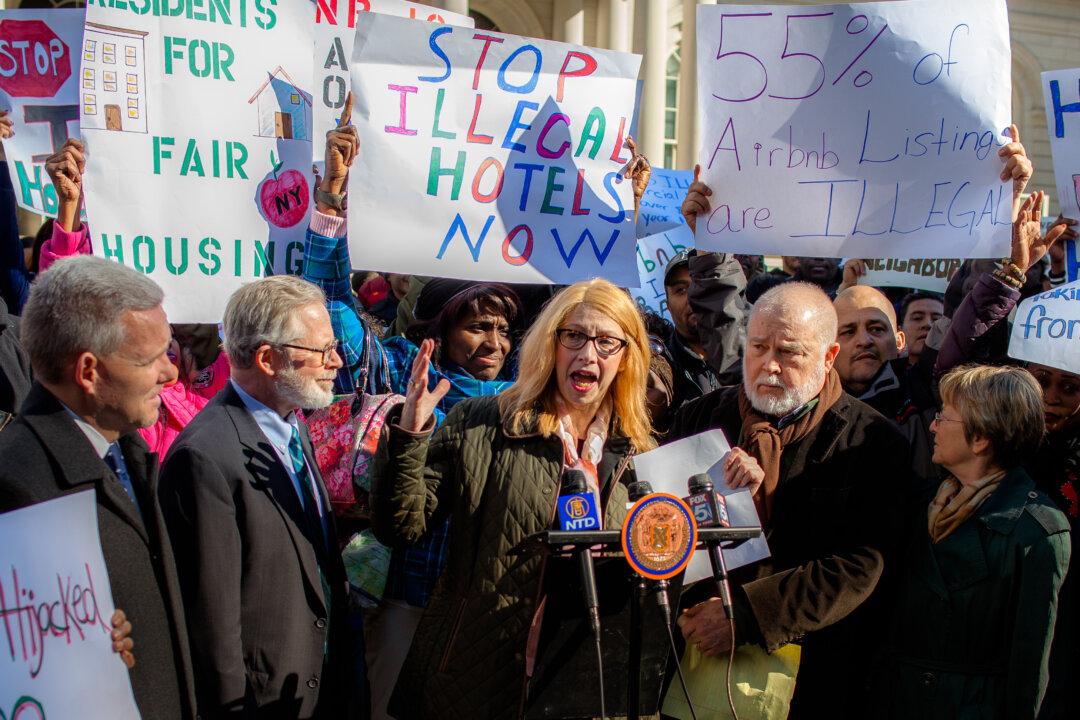NEW YORK—It was never going to be easy for Airbnb in the Big Apple. The city’s history of housing shortages has long been marked by fighting the major part of Airbnb’s business model—renting apartments as hotel rooms.
Multiple layers of regulations restrict short-term rentals in New York City, backed by protective tenants, housing advocates, and the hotel industry.
Airbnb follows the ideology of digital disruption, arguing its service is just too practical and attractive to be crippled by regulations. It also wields a massive wad of investors’ cash.
Yet, after some lobbying, mostly by the hotel industry, state legislators have clamped down on Airbnb. On Oct. 21, New York Gov. Andrew Cuomo signed a bill making it illegal to even advertise rentals of fewer than 30 days if the permanent occupant is not living there too. Fines can reach $7,500.
Airbnb filed a suit against the new law on Oct. 21 to clarify the penalty system. It is a last ditch effort to stop half of its business in the city from vanishing.
While not yet enforced, the new law has convinced some hosts to take down their illegal listings, while others plan to monitor the lawsuit before making changes.
“This is crazy. I actually didn’t know anything was signed into law,” one host said in an email. She planned to take her listing down, “at least until I can read through things more.”
“I know about it,” said another. “There is an appeal. I’m waiting for more official info and warnings before changing anything.”
“If Airbnb tells us that our listing is not within regulations and requests that we remove our listing, we plan to follow their decision,” a host said.
“I am aware of the law. I guess I would say [I’m] slightly concerned about getting fined and am hoping to get guests during Christmas time, then [my listing is] coming down,” another stated.
If the bill is enforced, thousands of New Yorkers face losing supplemental income from renting their homes through Airbnb. On the other hand, thousands of apartments in attractive neighborhoods could be released onto the rental market, pushing rents lower.






